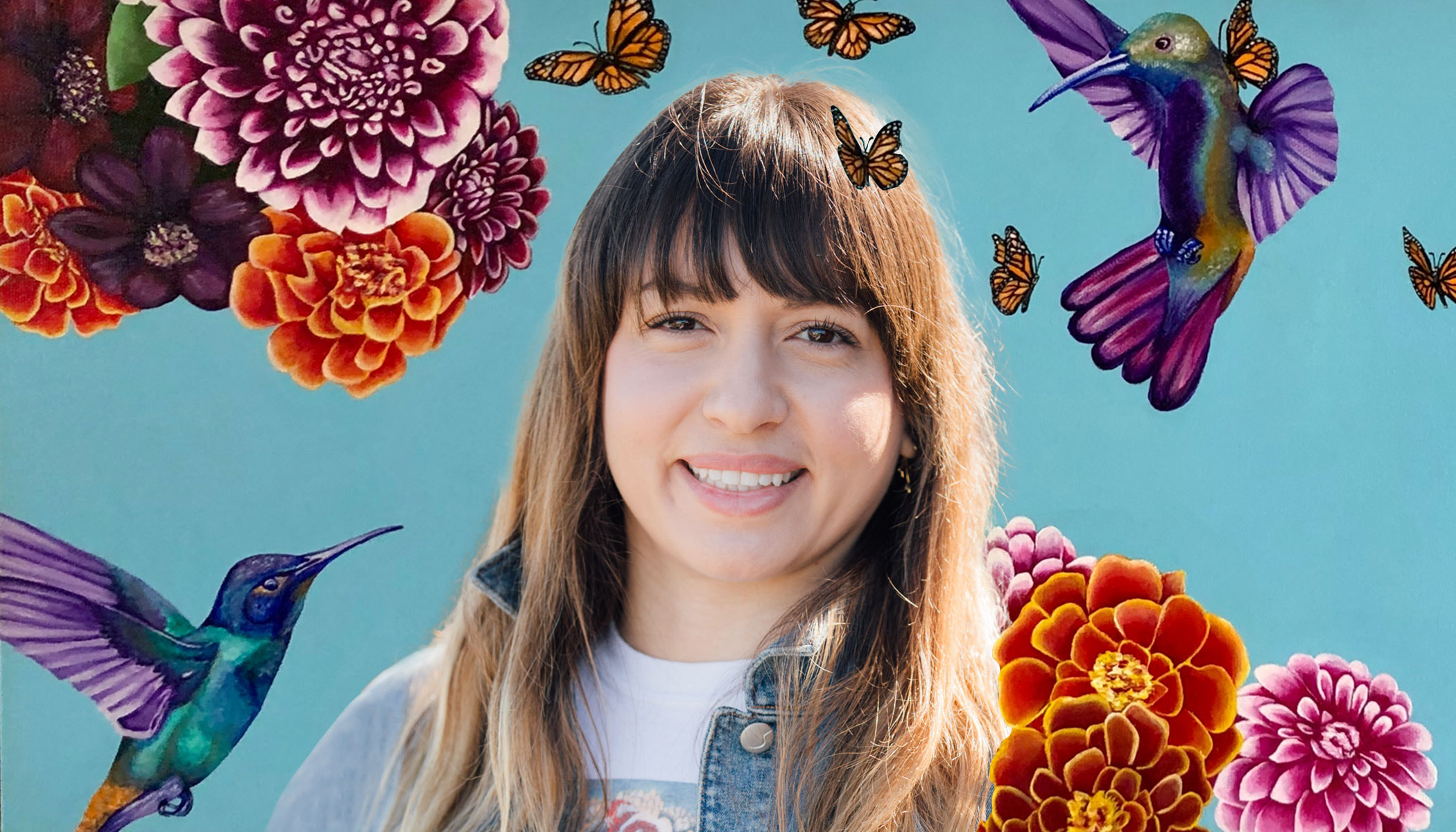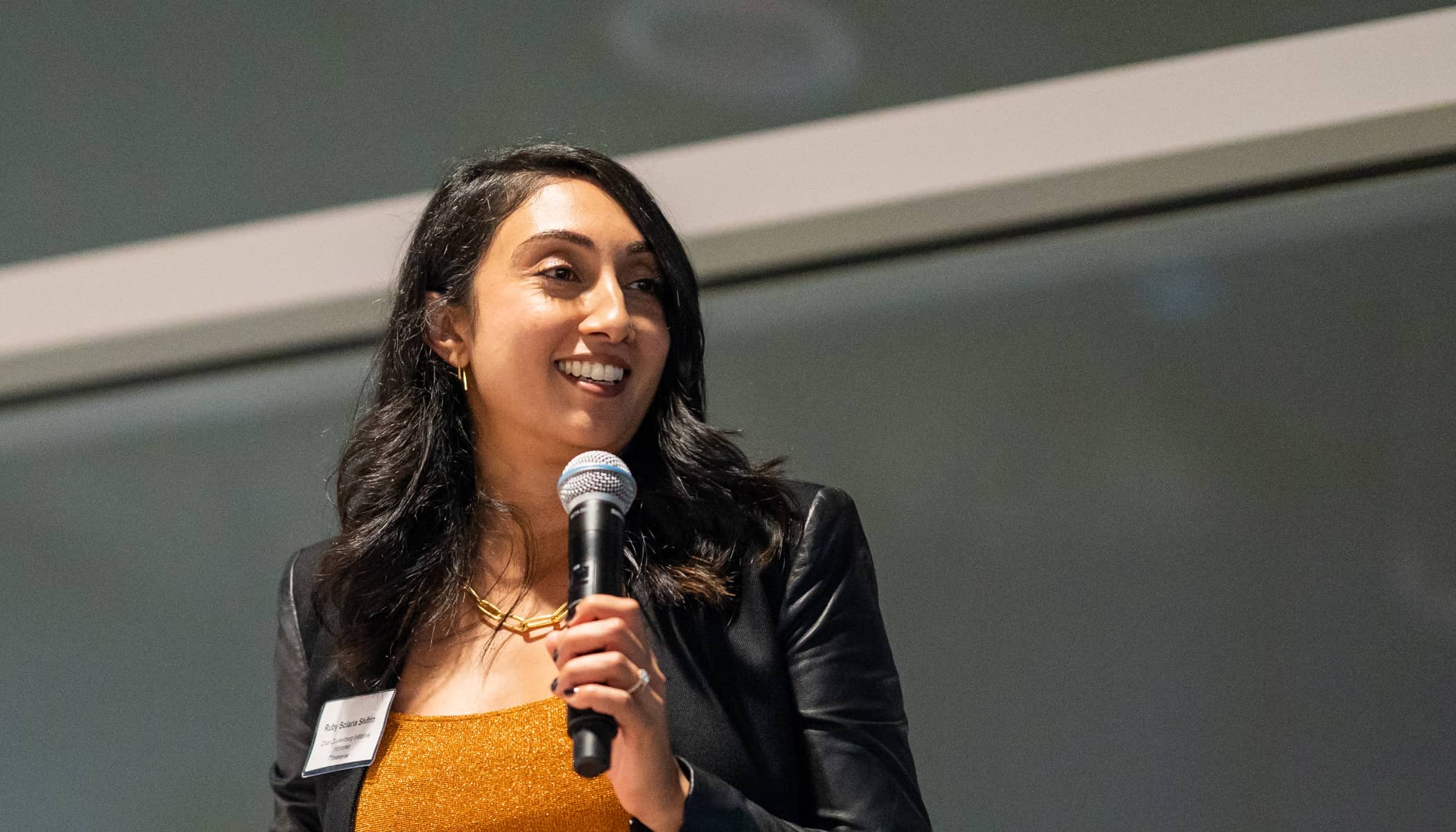Feb 23, 2022 · 6 min read
When the Work Is Personal: How a Program Associate Builds Resources for the Rare Disease Community
Andra Stratton, a program associate for CZI’s Rare As One Project, is using her personal and professional experience to be a voice for people affected by rare disease.
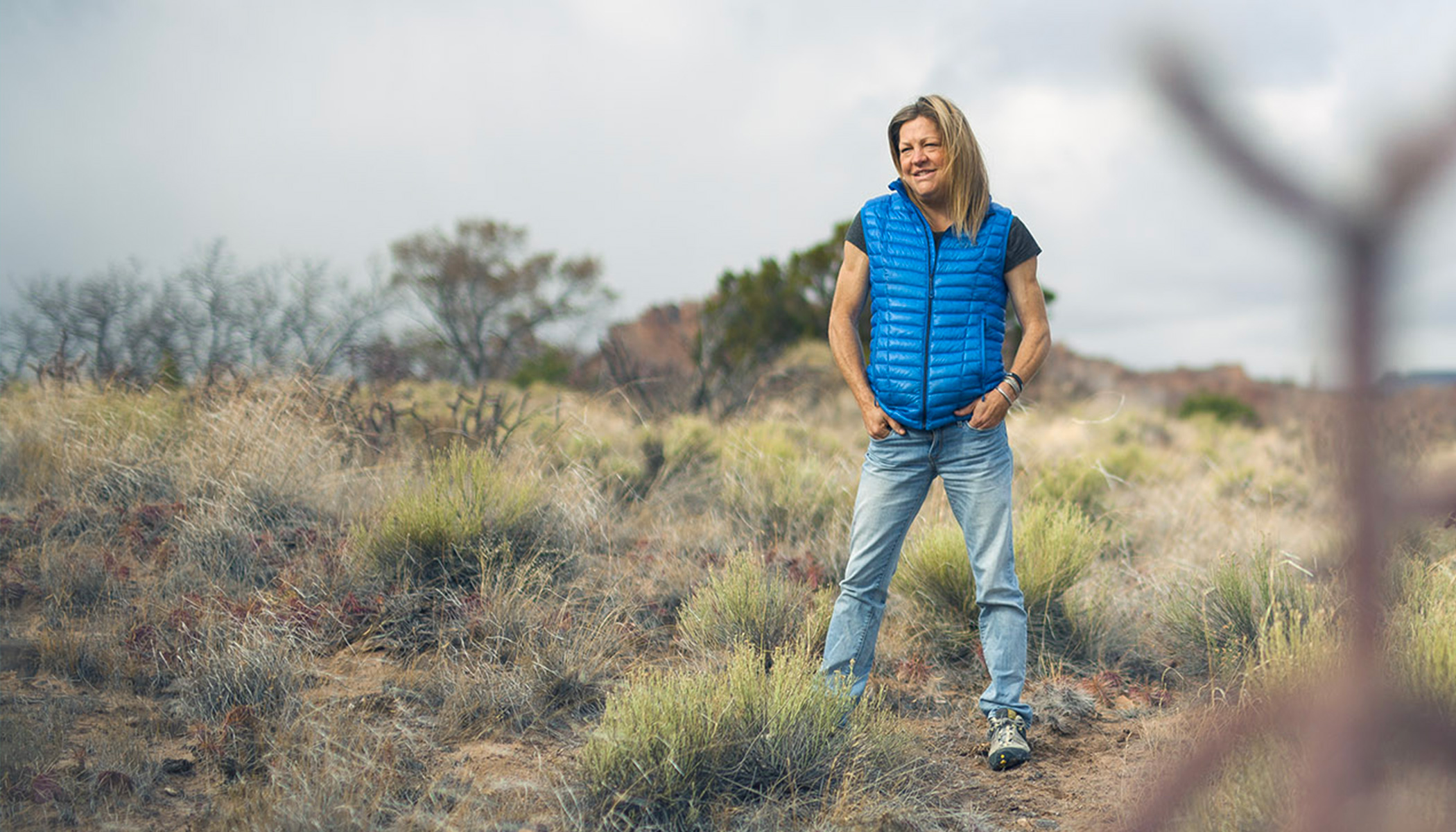
The people closest to our society’s most pressing issues should be the ones to inform solutions and drive change. So when we say to “stay close to the work” at the Chan Zuckerberg Initiative, we mean it. Our teams partner with diverse educators, families, community leaders and organizations, scientists and more to make sure the voices of those most impacted are always heard.
We’re excited to kick off our Stay Close to the Work series in 2022 with Andra Stratton, a Rare As One program associate. As part of our Science in Society program, the Rare As One Project (RAO) is committed to uniting researchers, patients and patient advocates on the quest to find cures. As many as 7,000 rare diseases affect 400 million people globally — and Andra is one of them. Discover how she uses her personal and professional experiences to support the patient-led organizations improving the lives of people affected by rare disease.
The gold standard in life is to ‘do what you love.’ But, it’s a mantra that often feels unattainable or unsustainable. Fortunately, I genuinely do what I love and believe I am meant to do.
Tell Us About What You Do at CZI.
My primary role is to identify and provide capacity-building resources to the 50 grantees of the Rare As One Network. I work directly with the grantees to understand their unique and shared strengths and opportunities to expand skills and resources.
For example, I created a training advisory committee to provide training, tools and coaching to build systems and procedures that allow our partners to engage with patient communities and researchers in an efficient way. We’ve seen that every instance of increased capacity positively impacted grantees’ ability to develop and support their research networks. Additionally, I bring the patient voice — based on my own experience and the experiences of our grantees — to other teams working on programs and products impacting our grantees.
How Did You Come To Be a Part of the CZI Team? Tell Us About Your Journey.
I spent part of my career as an industrial-organizational psychologist. When I was 37 years old, I was diagnosed with partial lipodystrophy. I spent time learning about my disease and the rare disease landscape and founded a nonprofit for lipodystrophy. Then, I spent the next 10 years working with patients, researchers, clinicians, umbrella organizations, regulators and dozens of industry partners. This work for patient advocates requires an extraordinary commitment of time and personal resources and is challenging without additional capacity.
Also read: Uncovering Sarcoidosis: The Rare Disease Impacting Black Women in the U.S.
Tell Us More About How Your Work at CZI Relates to Who You Are and Your Values.
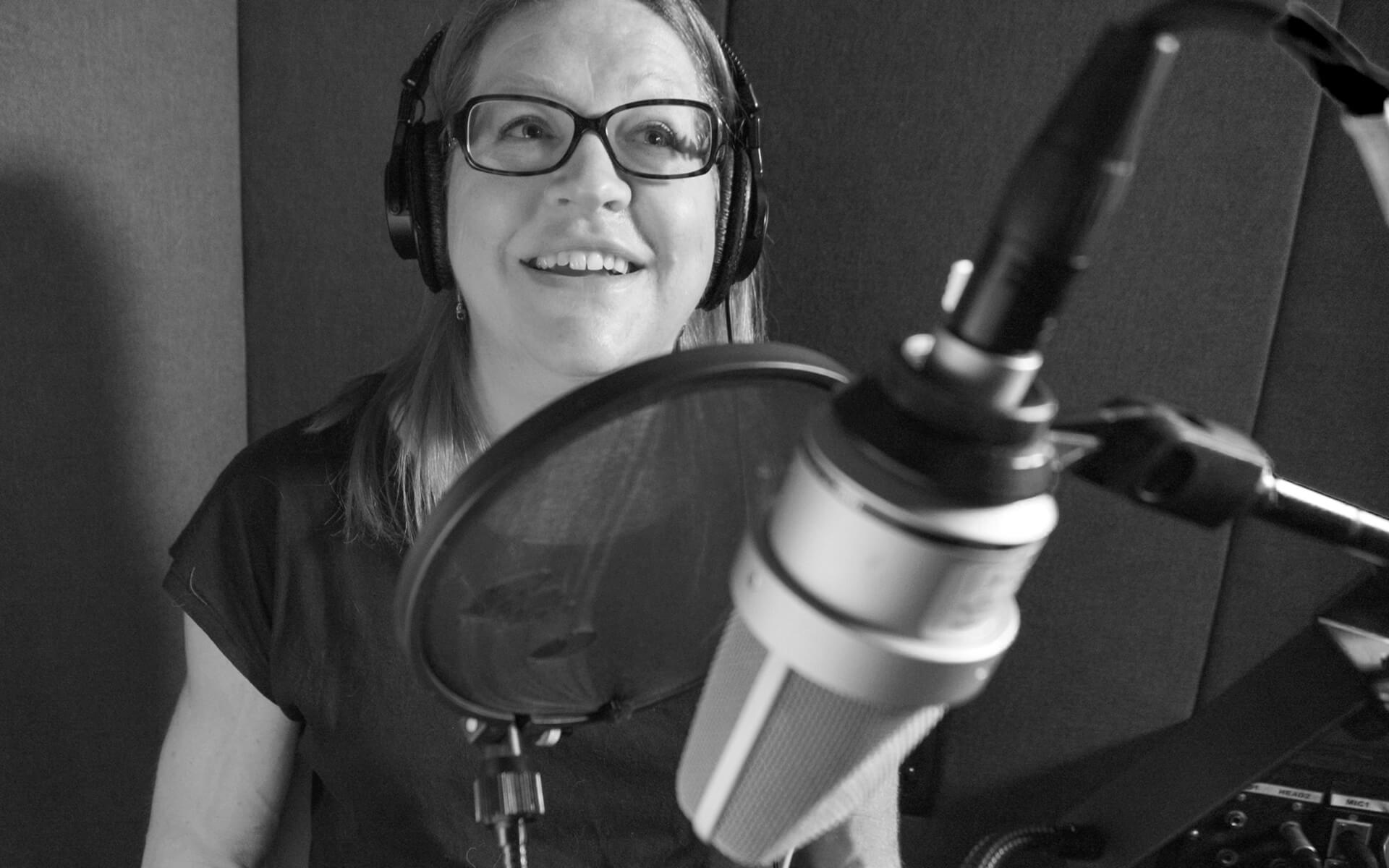
My diagnosis came after a lifetime of significant and unexplained health complications that compromised my quality of life, relationships and professional work. But having access to understanding what was happening to my body and treatment via a clinical trial changed my world.
Now, I can build trust, share experiences and provide guidance based on my challenges with the hope that others have a smoother journey than I did.
Living with a rare disease often drastically shortens lifespan and thus changes one’s perspective of time. The audacious goal to cure, prevent or manage all diseases by the end of this century is one that is very personal to me. I have a rare disease, and most of my friends have a rare disease or have children with a rare disease. There is no better way to spend my time than to work towards this goal.
The gold standard in life is to “do what you love.” But, it’s a mantra that often feels unattainable or unsustainable. Fortunately, I genuinely do what I love and believe I am meant to do.
Balancing the Demands of Work and Life Can Be Challenging. What Are Some of Your Favorite Ways to Prioritize Self-Care?
My rare disease is progressive and impacts my energy levels. I have learned that rest is self-care — not laziness. Ensuring that I balance activities with rest has enhanced my health and ability to enjoy the things that I do. I focus on quality, not quantity, of activities on my time off — spending time in my garden, with my animals, and turning my daughter’s playlist on loud while cooking. (Spontaneous dance parties tend to occur in our casa!)
When I do leave the house, I love to explore my home state of New Mexico. Some people don’t realize that New Mexico actually has all four seasons, vast skyscapes and many climates. I feel a strong connection with the high desert landscape thriving in harsh conditions.
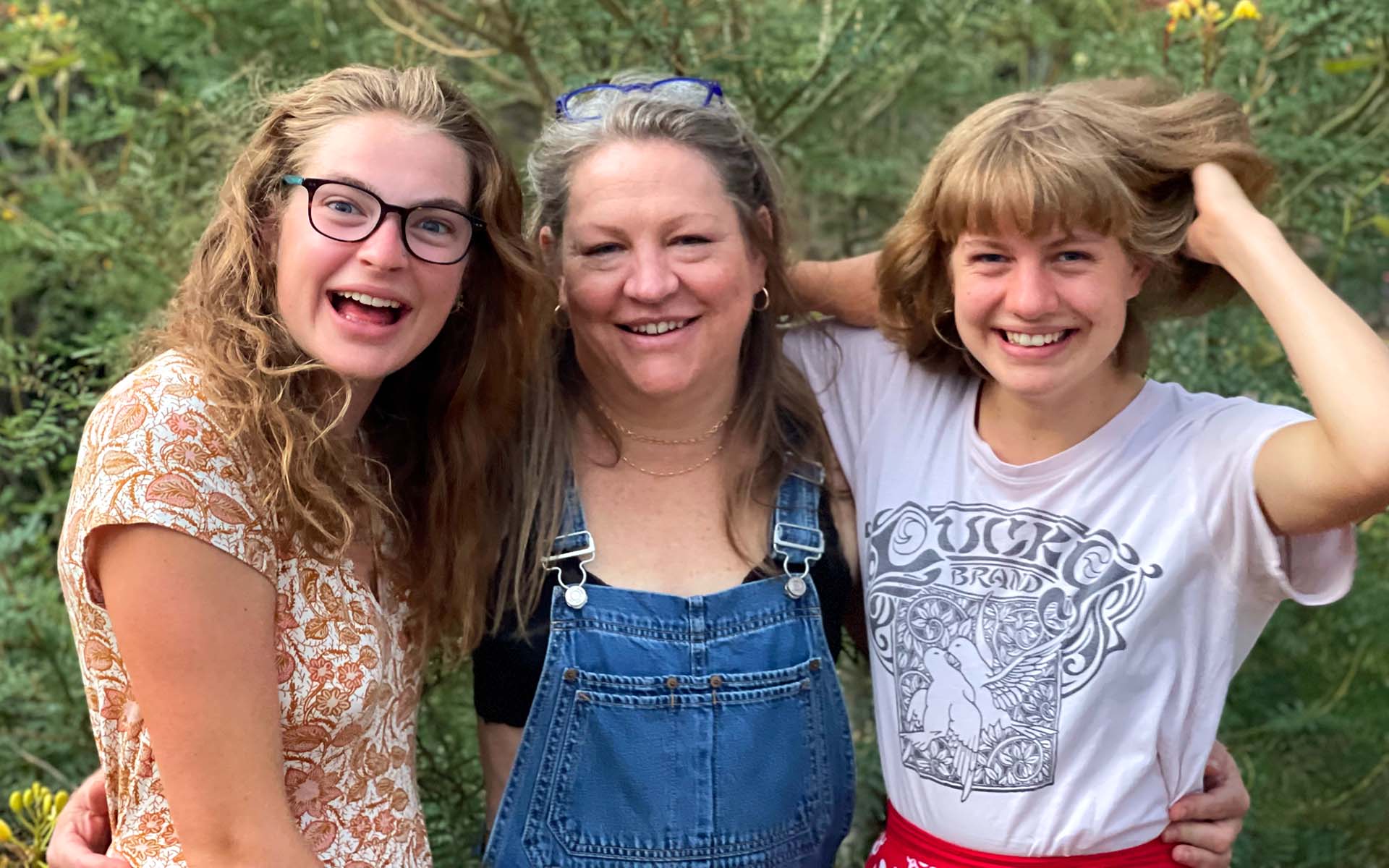
What Do You Enjoy Most About Your Role?
I frequently say that I have the best job at CZI. I interact with the RAO Network and identify resources that accelerate grantees’ work and increase their impact. I receive updates on their small and big wins regularly. That constant information is inspiring and immediately takes the edge off during tough days.
I also really enjoy providing the patient perspective and sharing anecdotes of the impact patients make on science with our other programs in a way that allows us all to widen our scope and think cross-programmatically.
I have learned that rest is self-care — not laziness.
As far as my team, I love working with passionate people. I am in awe of the intelligence and innovation of every member of the CZI family. Being a part of something so unique — that keeps the focus on and includes the communities we serve — fills me with pride and hope that our goals are indeed achievable.
Also Listen: 2 Rare As One Grantees on Why They Founded Patient-Driven Research Organizations
How Does the RAO Project and Network Bring You Joy?
Despite the pandemic, I have enjoyed bringing the network together in virtual meetings. The power of the community and the hope this grant has given it is very emotional and inspiring. The other day, a grantee shared with me that this funding opportunity made them feel validated and heard, and reinforced that their work is essential. Who doesn’t want to help others feel this way?
How Do You Hope to See CZI Evolve and Grow Over the Next Five Years?
We are starting to incorporate patient-partnered research into other areas of the Science Initiative. I hope we see these relationships grow into scientific discoveries that help us answer questions about common disease. And, as we continue to bring science to society, the goal is that all communities feel heard and represented — and trust that science is representative of them. I can’t wait to be part of that evolution.
Want to help us build a more inclusive, just and healthy future for everyone? Explore CZI career opportunities now. And for more Stay Close to the Work content, visit the series page.




